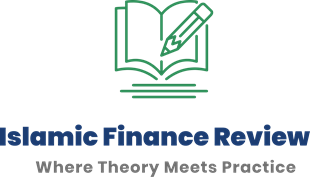
AAOIFI’s Shift to Asset-Backed Sukuk: Reform or Risk for the Global Islamic Finance Market?
- Post by: wp-islamicfinancereviewcouk
- July 22, 2025
- No Comment
🕌 Introduction
In a bold move that may reshape the $1 trillion global sukuk market, the Accounting and Auditing Organization for Islamic Financial Institutions (AAOIFI) has proposed an amendment to Shariah Standard No. 62, mandating that sukuk structures transition from “asset-based” to “asset-backed”. This regulatory shift, announced in May 2025, is designed to enhance Shariah compliance—but not without consequence.
This article explores the spiritual, regulatory, and practical dimensions of the proposed change, offering insight into whether this is a long-awaited return to Qur’anic principles or a disruptive jolt to an already delicate market ecosystem.
“And do not consume one another’s wealth unjustly or send it [in bribery] to the rulers in order that [they might aid] you to consume a portion of the wealth of others while you know [it is unlawful].”
— Surah Al-Baqarah 2:188
📘 What Does the Proposal Entail?
Historically, many sukuk issuances have been asset-based—giving investors only beneficial ownership of the underlying asset, without legal title. AAOIFI’s revised Standard 62 would now require:
-
Legal asset transfer via a Special Purpose Vehicle (SPV)
-
True sale of the underlying physical asset
-
Greater alignment with Shariah’s prohibition of riba and gharar
This would theoretically restore the spiritual integrity of sukuk as genuine investment certificates linked to real economic activity.
📊 The Challenges Ahead
Despite the noble intent, several obstacles stand in the way:
| Challenge | Impact |
|---|---|
| Sovereign ownership laws | Governments in Saudi Arabia, UAE, and Indonesia may legally resist transferring ownership of public infrastructure like airports and highways. |
| Investor appetite | Asset-backed sukuk resemble equity more than fixed-income instruments. They may lose credit ratings, limiting institutional participation. |
| Fragmentation | Uneven adoption of Standard 62 across jurisdictions could lead to a split sukuk market, eroding global liquidity. |
“Verily, Allah commands you to render trusts to whom they are due and when you judge between people to judge with justice.”
— Surah An-Nisa 4:58
📌 Strategic Recommendations
Industry experts suggest a phased, consultative approach:
-
✅ Grandfathering existing sukuk to avoid retroactive invalidation
-
✅ Engaging with ratings agencies early to preserve market stability
-
✅ Jurisdictional flexibility for countries unable to transfer assets directly
-
✅ Developing hybrid structures that respect both legal limitations and Shariah principles
This balanced strategy may uphold fiduciary trust, avoid disruption, and still honor Islamic ethical mandates.
🌍 A Global Turning Point for Sukuk
The sukuk market’s credibility depends on upholding the Islamic economic vision of risk-sharing, asset ownership, and moral finance. If AAOIFI’s proposal is implemented with care, it may serve as a revival of classical Islamic finance principles, restoring public confidence in sukuk as truly halal investment vehicles.
However, if rushed, it may risk causing market withdrawal, higher funding costs, and regulatory chaos—especially in jurisdictions where asset transfer is politically or legally restricted.
🔎 Conclusion
AAOIFI’s proposed reform to Standard 62 marks a defining moment in Islamic finance. It challenges us to confront long-standing compromises and renew our commitment to a financial system built not only on compliance, but on justice, transparency, and trust.
At Islamic Finance Review (IFR), we will continue to monitor this development and provide regular updates on its impact across global markets.
📚 References
-
Financial Times. (2025). AAOIFI moves to enforce asset-backed sukuk. https://www.ft.com
-
Fitch Ratings. (2025). Impact of AAOIFI Standard 62 on Sukuk Ratings. https://www.fitchratings.com
-
Qur’an – Surah Al-Baqarah 2:188, Surah An-Nisa 4:58
-
Bloomberg. (2025). Sukuk market risks fragmentation under new AAOIFI rules
